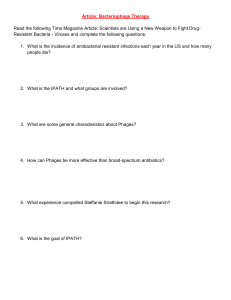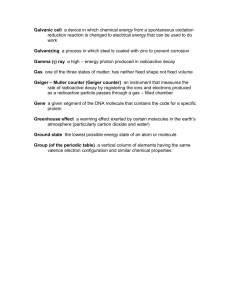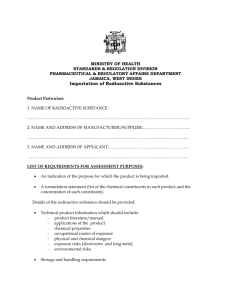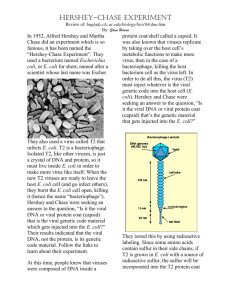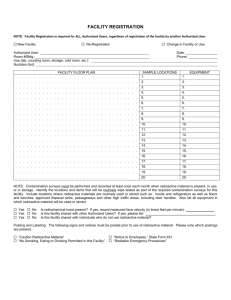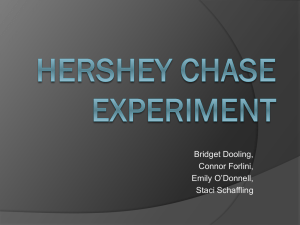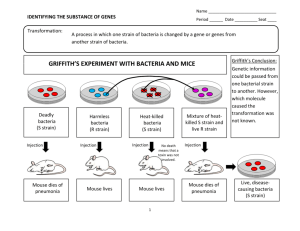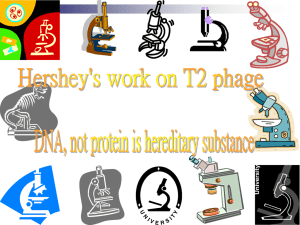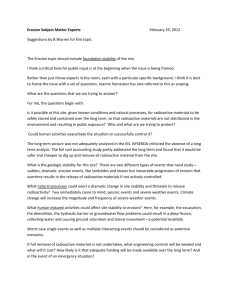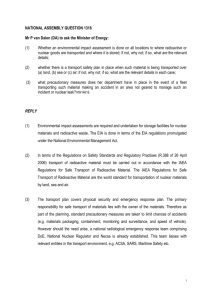The Hershey-Chase Blender Experiment
advertisement
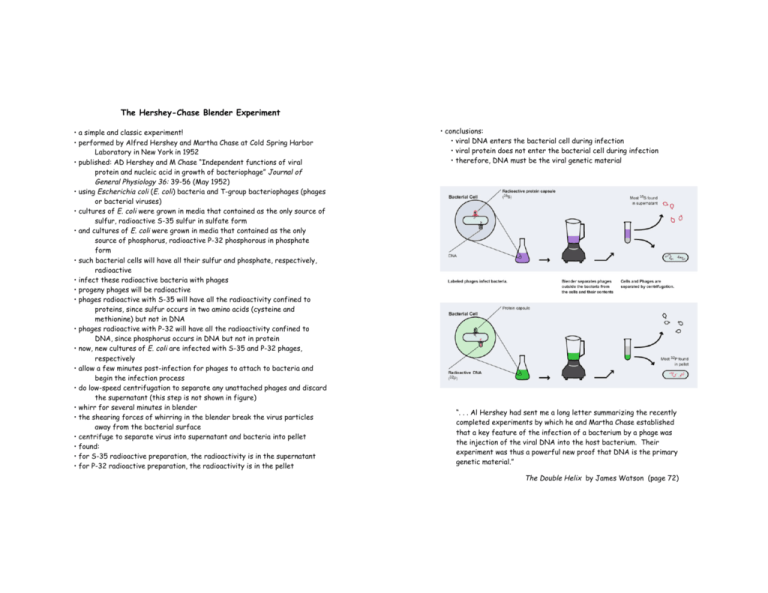
The Hershey-Chase Blender Experiment • a simple and classic experiment! • performed by Alfred Hershey and Martha Chase at Cold Spring Harbor Laboratory in New York in 1952 • published: AD Hershey and M Chase “Independent functions of viral protein and nucleic acid in growth of bacteriophage” Journal of General Physiology 36: 39-56 (May 1952) • using Escherichia coli (E. coli) bacteria and T-group bacteriophages (phages or bacterial viruses) • cultures of E. coli were grown in media that contained as the only source of sulfur, radioactive S-35 sulfur in sulfate form • and cultures of E. coli were grown in media that contained as the only source of phosphorus, radioactive P-32 phosphorous in phosphate form • such bacterial cells will have all their sulfur and phosphate, respectively, radioactive • infect these radioactive bacteria with phages • progeny phages will be radioactive • phages radioactive with S-35 will have all the radioactivity confined to proteins, since sulfur occurs in two amino acids (cysteine and methionine) but not in DNA • phages radioactive with P-32 will have all the radioactivity confined to DNA, since phosphorus occurs in DNA but not in protein • now, new cultures of E. coli are infected with S-35 and P-32 phages, respectively • allow a few minutes post-infection for phages to attach to bacteria and begin the infection process • do low-speed centrifugation to separate any unattached phages and discard the supernatant (this step is not shown in figure) • whirr for several minutes in blender • the shearing forces of whirring in the blender break the virus particles away from the bacterial surface • centrifuge to separate virus into supernatant and bacteria into pellet • found: • for S-35 radioactive preparation, the radioactivity is in the supernatant • for P-32 radioactive preparation, the radioactivity is in the pellet • conclusions: • viral DNA enters the bacterial cell during infection • viral protein does not enter the bacterial cell during infection • therefore, DNA must be the viral genetic material “. . . Al Hershey had sent me a long letter summarizing the recently completed experiments by which he and Martha Chase established that a key feature of the infection of a bacterium by a phage was the injection of the viral DNA into the host bacterium. Their experiment was thus a powerful new proof that DNA is the primary genetic material.” The Double Helix by James Watson (page 72)
